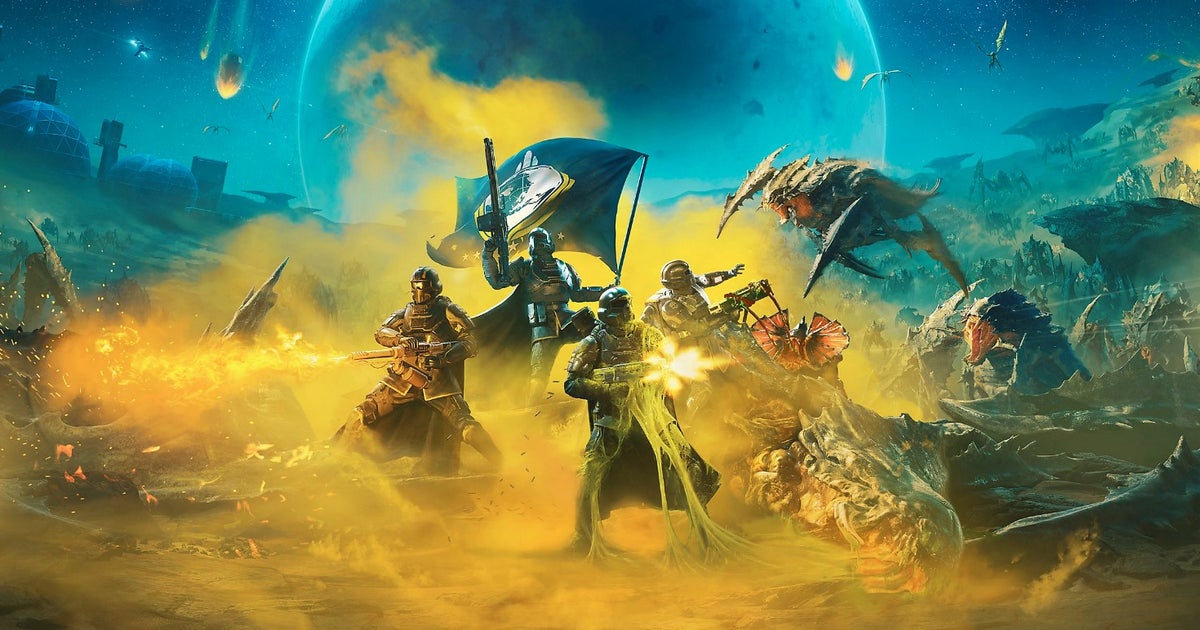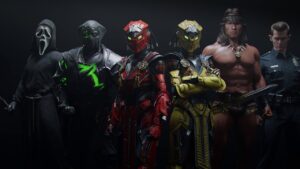No one expected the success of Helldivers 2.
The cooperative third-person shooter, which was published by PlayStation and developed by Arrowhead Games, was released in February and sold 12 million copies in three months. It’s now the fastest-selling PlayStation game – bigger than God of War, Spider-Man or Uncharted.
“Depending on who you are, you’re always going to point to different things [as to why it was successful]” says Arrowhead Chief Creative Officer Johan Pilstedt. “If you’re a business executive at a major publisher, you’d say the live service element keeps players coming back and the lower price. If you are a game designer, you will indicate the systematic nature of the game. If you’re an artist, you’ll talk about the cycle of day and night, destructible environments, and beautiful worlds. It is the balance between all these elements.
“But speaking personally, I’d say it’s the fact that we’re doing something with Helldivers that’s beyond the inflection point that the games industry is heading towards. What you see through these cycles in the industry is people getting inspired by each other and building on that, but that means people build to a point because you lose something with each iteration.
“With Helldivers, we made the firm decision that we would not continue with the status quo. We’re going to push ourselves beyond that by making a lot of mechanics that aren’t usually seen in games. We have friendly fire on, always. I think people are surprised that we make games this way. They’re surprised that the onus is on you not to blow up your friends.”
For Pilestedt personally, the success of Helldivers 2 was the realization of a dream he’s had since he was eight years old.
“I asked my dad, ‘how do I start a video game company?’ And he said, ‘Get really good grades,’ of course that was a lie,” he laughs.
The problem with realizing a dream (albeit a good problem) is figuring out what to do next.
“We’re proud to be an independent studio.” Johan Pilstedt, Arrowhead
“Helldivers 2 put me in a weird contemplative mode,” he admits. “Because the problem with achieving such incredible success, achieving your calling, is that you have to choose your next chapter. It doesn’t come from within like knowing what you want to do since you were eight.”
This led Pilestedt to Shams Jorjani. Jorjani’s history with Arrowhead stretches back to the very beginning. He was one of the organizers of the Swedish Game Awards, which Arrowhead won with its game Magicka. Jorjani then joined Paradox Interactive, who had just signed the game, and he was assigned to the project. He helped launch that and then Arrowhead’s second (and considerably less successful) game, The Showdown Effect.
“After that, we had intense negotiations for Magicka 2, which were finally decided in an Icelandic hotel room overnight,” Giorgani said. “We were both drunk at the time and decided ‘no, we’re not going to do this project.’
But the two kept in touch. And then in 2021, Giorgani left Paradox.
“I had a bit of ‘big company PTSD,’” he continues. “Paradox was 800 people, ten studios in six countries, and a public company. After I left Paradox, I came to Johan and said “let’s do something together. We might kill each other, but we’ll have fun.” And Johan, wise as he is, told me to back off because he had to send a game.”
That game was Helldivers 2. Eventually, Giorgani started advising Arrowhead, and then when Helldivers 2 came out, Pilestedt asked him to become CEO.
The move means Jorjani will take over the day-to-day running of the business, allowing Pilestedt to focus on game creation.
“We were both at a stage where we were wondering what was next in our careers,” Giorgani says. “And we realized that we probably wouldn’t be able to get to those places if we didn’t have the other to help us get there.”
Pilestedt adds: “When it comes to the overall direction of the organization, I’m still the chairman. So Shams and I will still be having strategic conversations about how we take Arrowhead into the future.”
Jorjani again: “My job is to enable him and other creative people to be able to make more games. And this is also important for the players. I’m playing Helldivers and I hear my friends asking… ‘Are we getting more stuff?’ And I’m like ‘yes, soon, because Johan will have more time to do it’ ‘We want more enemies!’ I’ll tell Johan.”
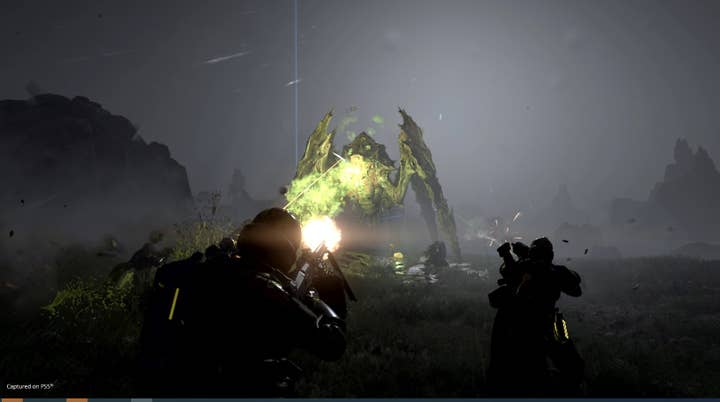
Part of Jorjani’s role will be to help Arrowhead navigate the impact of the success of Helldivers 2. The firm was already a successful developer. The first Helldivers game sold four million copies, while Magicka was also a hit. “They were all massive games in their genres,” notes Pilestedt.
But Helldivers 2 is on a different level. And right from the start, the team had to contend with a series of issues, starting with “burning servers.”
“We tried to fan this … but you shouldn’t fan flames,” Pilstedt says. “I told people not to buy the game until we could get the servers running… but it actually increased the number of users, unfortunately.”
Then there was the issue of adding the need to log into the PlayStation Network to play the game, which led to a backlash from fans and Helldivers 2 becoming unavailable in certain markets. Sony eventually dropped the requirement.
There are also other general issues with the live service, such as concerns about game balancing.
“This is something the organization has seen before,” Pilestedt tells us. “We had a terrible Magicka launch that was really buggy, and me and Shams realized that we needed to interact with the community, talk to them in an honest way and tell them what was going on as much as we could. And then take action immediately to resolve the issues. So we’ve seen it before, albeit on a much smaller scale, this time they’re higher.”
“The big difference is the amount of threats and rude behavior that people in the studio get from some really crappy people in the community”Johan Pilstedt, Arrowhead
He adds: “When we look at the challenge before us, we feel like Frodo and Sam going to Mordor. The forgetful approach of “we’ll take one step at a time and then solve the problems as they come.” .The strength of Arrowhead is the camaraderie we share as a team and the willingness to help each other, almost, and come out stronger on the other side.”
Pilestedt says the experience so far has been “extremely enjoyable and a little scary.” Helldivers was inspired by Dragons & Demons (Sweden’s answer to Dungeons & Dragons) and the team enjoyed playing the role of game master with their community.
“Our game design is about transferring our love of pen-and-paper RPGs into games that don’t necessarily have dice rolls and stats. Many of these pen-and-paper sessions are based on a serious premise that dissolves into farce. We’re seeing that with how the community interacts with Helldivers 2, but also how we interact with them.”
But with 12 million fans, there were some challenges with the community that the team hadn’t experienced much before.
“The big difference now, which is terrifying, is the amount of threats and rude behavior that people in the studio get from some really crappy people in the community,” Pilstedt says. “It’s something new we have to deal with.”
Pilestedt says frustration is part of the essence of Helldivers: “If you don’t have those lows, you can’t reach those highs.” And while this is something that is understood by more hardcore players, when you reach 12 million people, it’s not something that everyone will appreciate.
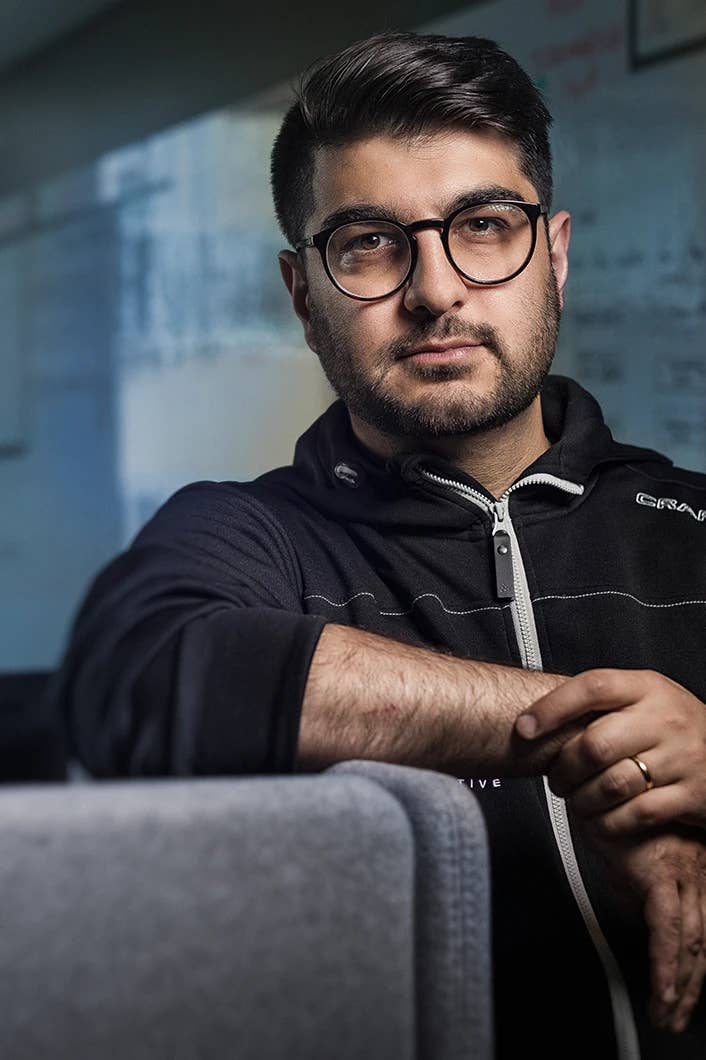
“Arrowhead’s philosophy has always been ‘a game for everyone is a game for no one,'” Giorgani explains. “This is the slogan of the company. This is how our games are designed. You can feel it in every function. I think that’s one of the big reasons Helldivers 2 was so successful. It feels fresh because it does a lot of unpopular things.
“When you hit this big, much bigger than anyone thought – Sony, us, everyone – what happens is that the game finds an audience outside of that niche fan group.” So you get that amplification of different voices. Almost all games have some toxicity in the community, but with these big numbers you only get so much, so we have to work with the community to get them to self-moderate, to give people the tools to talk to each other in a positive way to we can continue talking openly with the players, adding more voices to people adds complexity.”
“We will see growth, but growth as a means to an end, not as an end in itself”
Shams Georgiani, Arrowhead
He continues: “Valve is supposedly releasing a new PVP game and I’m sure they’ve put hundreds if not thousands of hours into how to deal with toxic players because they have that experience from DOTA and Counter-Strike. This is ingrained in their product development and they can just pick up these systems. All that investment and process that we’re painstakingly learning now will carry over to the next thing, whatever that is.”
It’s something that’s also a bit of a learning curve for PlayStation. Sony isn’t the most experienced publisher when it comes to live service products, although it’s starting to invest in this area through new games and acquisitions of companies like Bungie.
“It’s been a great partnership and we’re learning together and they recognize that Arrowhead can be the cutting edge in learning how to [live service] better in the future,” Giorgani says. “It’s just great to have someone by your side while you’re working this out.”
Pilestedt adds, “We’re always chasing our tail in one way or another. We have to lay the tracks as the train moves forward. There are optimizations and workflow improvements we can make. We’re going in and setting up the organization to have the team running at a reasonable speed because right now, to some extent, we’re burning the candle at both ends and we want to get to the point where we’re producing as much candle as we’re burning.”
Today’s focus is on Helldivers 2 and getting the balance right. But the studio feels confident, has a strong financial position, strengthened its leadership team and is now looking ahead to what’s next.
“We feel like we have so much more to give and so many more games we want to make,” says Pilestedt. “The level of ambition and appetite of the organization has grown significantly. Now we have a taste for blood and we want more.”
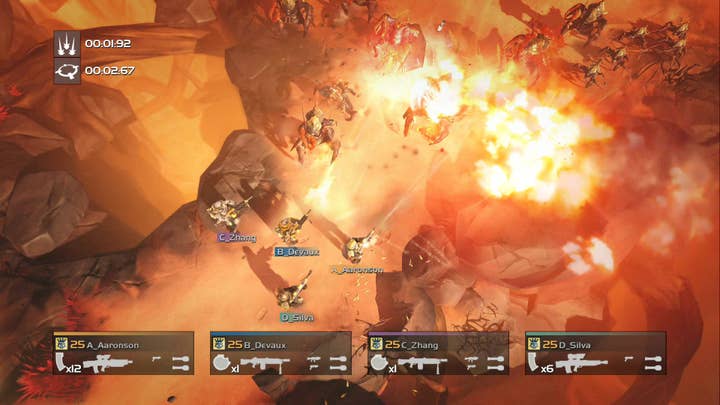
But that doesn’t necessarily mean exponentially increasing headcount, acquiring or going public. For Pilestedt and Jorjani, it’s all about what it takes to make the games they want to make.
“We’re proud to be an independent studio,” says Pilestedt. “We’ll have to see what the future holds, but there’s nothing in the plans where we want to be acquired by anyone. I want to see how high we can fly. And by bringing Shams on board, we have good potential to realize that future of becoming the next From Software or Blizzard.”
Jorjani adds: “The studio’s goal is to make really great co-op games. We really want to make Arrowhead a flagship studio where people who want to make these kinds of games say, ‘I want to work at Arrowhead,’ when we were little, we really wanted to work at Blizzard, it was one of the best places to work. I think Arrowhead has the potential to be that.
“But that doesn’t mean we have to be a company of 500 people. Actually, a company of 500 people is quite painful in many ways. We will see growth, but growth as a means to an end, not by having no plans to go public.
Pilestedt concludes, “We don’t run the business for monetary gain. Humility and the desire to simply make great games is the only reason we exist.”
